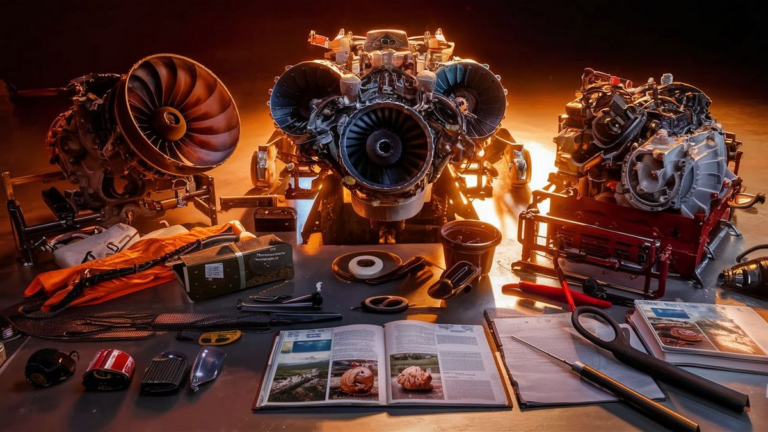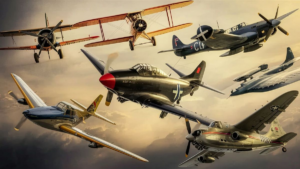Welcome to the exciting world of aircraft mechanics, where precision and expertise meet the skies! If you’re passionate about aviation and dream of playing a crucial role in ensuring the safety and functionality of aircraft, this guide will provide you with valuable insights on how to become an aircraft mechanic.
Understanding the Role
Before embarking on the journey to become an aircraft mechanic, it’s essential to have a clear understanding of the role. Aircraft mechanics, also known as aviation maintenance technicians, are responsible for inspecting, repairing, and maintaining aircraft to ensure they meet stringent safety standards.
Educational Requirements
One of the fundamental steps in becoming an aircraft mechanic is obtaining the necessary education. Typically, individuals pursue an Aviation Maintenance Technician (AMT) program accredited by the Federal Aviation Administration (FAA). These programs cover a range of subjects, including aircraft systems, avionics, and regulations.
Hands-On Experience
While classroom knowledge is crucial, gaining hands-on experience is equally important. Many programs include practical training components, allowing students to apply their theoretical knowledge in real-world scenarios. Additionally, consider seeking internships or apprenticeships with reputable aviation maintenance organizations to enhance your practical skills.
FAA Certification
After completing your education and gaining the required experience, the next step is obtaining FAA certification. This involves passing written, oral, and practical exams administered by the FAA. The certification is divided into airframe and powerplant ratings, reflecting the two main areas of aircraft maintenance.
Continuous Learning
The aviation industry is dynamic, with technological advancements and regulatory changes occurring regularly. To stay competitive and ensure the highest level of safety, aircraft mechanics must engage in continuous learning. Attend workshops, seminars, and stay updated on the latest industry developments to enhance your skills.
Building a Professional Network
Networking is a powerful tool in any industry, and aviation is no exception. Attend industry events, join professional organizations, and connect with experienced professionals. Building a strong network not only provides valuable insights but also opens up opportunities for career advancement.
Job Opportunities
With your education, certification, and network in place, explore job opportunities in the aviation industry. Aircraft mechanics are employed by airlines, maintenance facilities, and even the military. Consider the type of aircraft and the work environment that aligns with your interests and career goals.
Embarking on a career as an aircraft mechanic is a rewarding journey filled with challenges and opportunities. By following these steps, you’ll be well on your way to becoming a skilled and certified aviation maintenance technician, contributing to the safety and reliability of aircraft around the world.
Frequently Asked Questions
Curious about pursuing a career as an aircraft mechanic? Here are some frequently asked questions to provide additional insights into this exciting field:
| Question | Answer |
|---|---|
| 1. What is the typical duration of an Aviation Maintenance Technician (AMT) program? | AMT programs usually take around 18 to 24 months to complete, depending on the specific program and the level of education provided. |
| 2. Can I specialize in a specific type of aircraft during my training? | Yes, some programs offer specializations where you can focus on certain types of aircraft, such as commercial airplanes, helicopters, or military aircraft. |
| 3. Are there ongoing certification requirements for aircraft mechanics? | Yes, maintaining FAA certification requires periodic renewal through ongoing education and demonstrating continued proficiency in the field. |
| 4. How crucial is networking in the aviation industry for career growth? | Networking is highly important, as it opens doors to job opportunities, mentorship, and staying informed about industry trends. It can significantly contribute to your career growth. |
Advanced Specializations
As an aircraft mechanic, once you have gained experience in the field, you may consider advanced specializations to further enhance your expertise. These specializations could include avionics systems, aircraft modifications, or even emerging technologies like electric propulsion systems.
Adapting to Technological Changes
Given the rapid advancements in aviation technology, staying abreast of technological changes is crucial. Integrating new technologies, such as artificial intelligence in maintenance processes, can be a valuable skill set for future aircraft mechanics.
Environmental Considerations
As environmental consciousness grows, there is an increasing focus on sustainable aviation. Aircraft mechanics can explore opportunities to specialize in eco-friendly modifications and maintenance practices, contributing to the industry’s efforts to reduce its environmental footprint.
See also:






